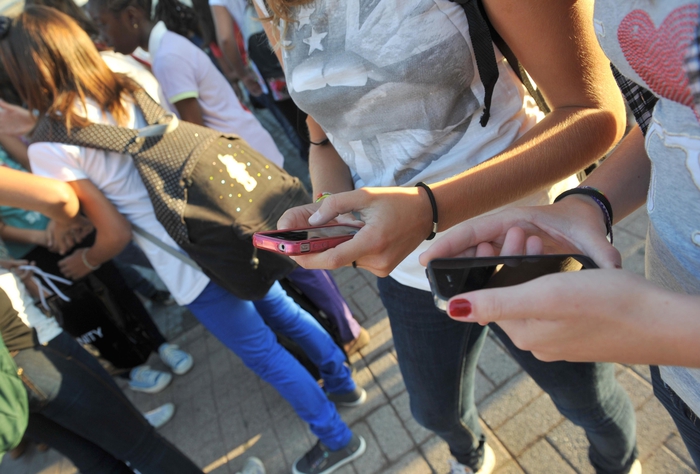FOLLOW
Follow
In 2012, Daphne Kohler and Andrew Kane, two Stanford University computer science professors, began sharing part of their face-to-face classes on a website.
When they saw the interest that its content aroused, they decided to turn this idea into a company: Coursera, a platform that today offers around 4,500 courses, especially aimed at university students and companies.
If someone wants to learn to program with the Python language, they can go online and take a free course from the University of Michigan.
Jeff Maggioncalda, current CEO of the company, analyzes how the pandemic has changed education habits and the interests of citizens in terms of online training.
Maggioncalda has participated in enlightED, the third edition of the world conference on education, technology and innovation organized by Fundación Santillana, Fundación Telefónica, IE University and South Summit.
"Since mid-March, we have seen more than 24 million new users registered. That is more than triple the same period last year. We now have 73 million in total," he explains through Zoom.
"So yes, online learning has grown incredibly fast because of the pandemic."
Have the interests of users also changed?
Yes, I have seen some interesting changes.
This year, the type of courses that are being requested the most is a little different than the rest of the years in Spain, and it clearly has to do with the coronavirus.
During 2020, one of the most requested courses has been the wellness science, from Yale University, which talks about what kinds of decisions we can make to feel better and how they affect us.
This course has worked very well during the pandemic, as has the psychological first aid.
Another very popular one has been one on digital skills and office software.
These changes could sum up the interests of citizens in 2020: wellness science, psychological first aid and some technology.
Needing technology to access education leaves behind some families who do not have access to devices or Internet connection, what can be done to solve this?
That is highly dependent on governments, but private companies also play a key role.
Elon Musk is launching satellites into space with his Starlink project with the aim of bringing broadband Internet to places where there is no connection right now.
I don't know how much that is going to cost, but I think that in collaboration with governments they could make sure it gets done right.
There are places in the world where many people have a cell phone but data plans are very, very expensive.
Certain governments in Africa, for example, are doing what is called a
zero rating
.
They are telling mobile operators that they can charge for downloads, but not for access to educational websites.
Our citizens must have free access to certain educational material.
This is an example that governments have a very important role to play.
Online education has proven to be useful, but what is missing to make it truly effective?
I mean not only courses, but primary and secondary education.
In children between five and 12 years old, a good part of learning consists of socializing and being cared for by an adult, having a teacher who inspires you and teaches you how to play with other classmates.
Online education for children can be a resource, but social interaction at that age is the most important.
Something that could make online education more effective is developing ways of practicing what you learn, moving from theoretical to practical, and developing highly applied learning.
You can build projects online, such as developing web pages.
The next scenario is to influence the learning of soft skills, such as learning to negotiate, public speaking, teamwork, creativity, collaboration ... it is the next great phase of online education.
Do you agree with the idea that technology has helped democratize access to training?
Not at all.
The people who have been harmed the most by the pandemic are generally those with the fewest resources, without university training and who are not working in digital positions.
It must also be borne in mind that there are families who do not have all the devices they need, people in rural areas or in developing countries who do not have equal access to the network.
And this widens the digital divide.
If you have access to good education and connection, learning and work opportunities increase.
This could really help even things out, but there is still a lot to do.
I think the pandemic will initially have a negative impact on equity, but in the long term it will create more access to learning and employment than before.
The pandemic has greatly influenced the increase in online education, do you think these changes will continue later?
I am sure yes.
Businesses in Spain and especially throughout Europe have been forced to extend teleworking, which has accelerated the digital transformation.
This also means giving more online training to your employees.
Schools and universities have also been forced to switch to online education.
UNESCO said in April that there were 1.6 billion students with schools closed, 90% of all students in the world.
And many teachers did not know how to deal with this situation: they had to start teaching online and they had never done so.
Now that they have been teaching and receiving classes online and are using tools like Coursera, they are seeing many benefits of online learning, flexibility, and customization access to more types of courses.
So I think there is no doubt that online learning will stay with us and will be a complementary part of how we learn.
So he believes that in the future education will be a combination of online and offline.
Yes, I think we will all have access to online training and then some people will go to college campuses.
For many people, the training will be online only, but we will still have universities that will continue to teach face-to-face.





/cloudfront-eu-central-1.images.arcpublishing.com/prisa/NDOLPLTSMZFBFKHXOW3LXEFPOA.jpg)


